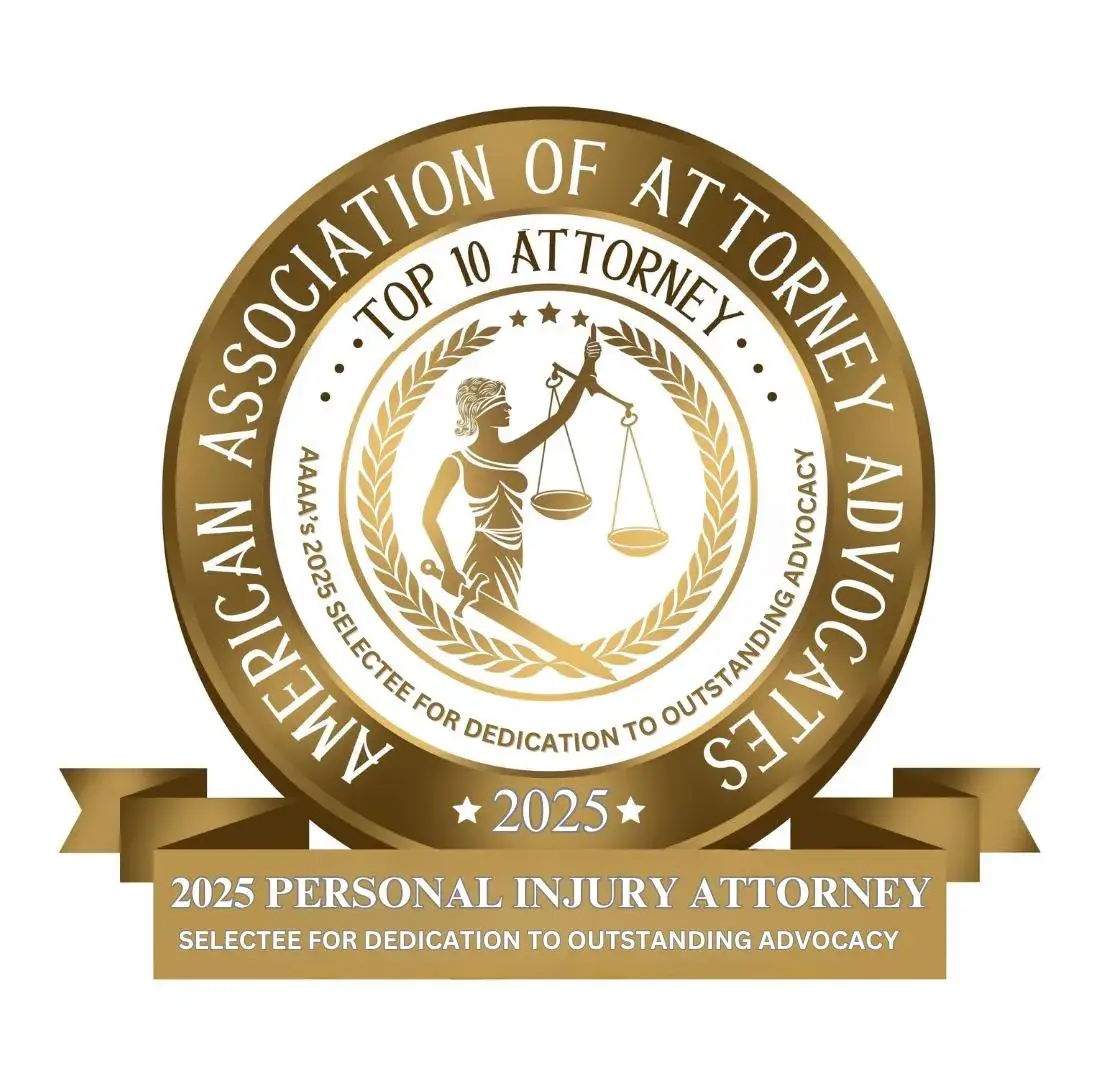
Can a Lawyer Lie to Me About a Settlement? How Insurance Attorneys May Mislead You
Yes, a lawyer for the insurance company can mislead you during settlement negotiations, and it happens more than you might think.
While New Jersey’s Rules of Professional Conduct prohibit a lawyer from knowingly making a false statement about a material fact, there is a significant difference between an outright lie and a misleading tactic designed to make you accept less than your claim is worth. They might omit information, misrepresent their authority to settle, or frame an offer in a way that feels final when it is merely a starting point.
After an accident, you are likely dealing with pain, mounting bills, and uncertainty. The last thing you should have to do is try to decode the language of an attorney whose goal is to protect their client’s—the insurance company’s—bottom line. This pressure to settle quickly, especially when you see your savings dwindle, feels deeply unfair when you’re dealing with an injury coming from someone else’s negligence.
The key to protecting yourself is working with someone who understands their playbook. As personal injury lawyers, we know their objectives and the tactics they use to remove your power. You don’t have to figure this out on your own. Our role is to take this burden from you.
If you are negotiating a settlement in Fort Lee, Hackensack, or anywhere in Bergen County and feel you are being misled, don’t ignore your gut. Call Maggiano, DiGirolamo & Lizzi, P.C. today for a free consultation at (201) 585-9111.
Table of contents
- Whose Side Are They On? The Insurance Defense Lawyer’s True Client
- How Might an Insurance Lawyer Mislead Without “Lying?”
- Is This Just Aggressive Negotiation or Something More?
- You Don’t Have to Be a Legal Scholar, You Just Need a Plan
- What to Do if You Suspect Bad Faith or Fraud by an Insurance Company
- How Common Are Bad Faith Insurance Tactics in New Jersey?
- Common Questions About Settlement Negotiations
- Your Case Is About More Than a Number—It’s About Your Future
Whose Side Are They On? The Insurance Defense Lawyer’s True Client
An insurance defense lawyer is hired and paid by the insurance company. Their primary professional duty is to the insurer, not to you.
Their incentive is simple: resolve the claim for the lowest possible amount to save the insurance company money. This creates an inherent conflict of interest. While they may be polite and seem helpful, their financial and professional incentives are still directly opposed to yours.
This is known in legal circles as the “tripartite relationship,” where the lawyer is caught between their duty to the insurance company that pays them and the fairness owed to the injured party.
Think of it this way: you would not ask the other team’s coach for advice on how to win the game. The same logic applies here.
How Might an Insurance Lawyer Mislead Without “Lying?”
The line between aggressive negotiation and unethical behavior is thin. While lawyers are bound by ethical rules, settlement negotiations are given wide latitude. They can legally use “puffery” or make statements that aren’t considered “material facts.” Here’s what to watch for.
Tactic 1: The “Take-It-Or-Leave-It” Lowball Offer
The lawyer presents an initial offer that is unreasonably low and calls it their “best” or “final” offer. This is designed to make you feel powerless and anchor your expectations to a low number.
The Truth
The first offer is almost never the final offer. It’s a test to see if you understand the true value of your claim. With a vast majority of personal injury cases—around 95%—ending in a settlement, the process is a negotiation, not a one-time declaration.
Tactic 2: Misrepresenting Their Settlement Authority
The lawyer claims they don’t have the authority to offer more money. They might say, “My hands are tied,” or “The supervisor will never approve more than this.”
The Truth
While they may have an initial authority limit, that limit is sometimes flexible. It’s a common tactic to stall negotiations and pressure you into accepting less. A skilled attorney on your side knows how to build a case that forces them to go back and get more authority.
Tactic 3: Using Your Own Words Against You
The insurance adjuster or their lawyer will ask for a recorded statement early on, often when you are still in pain or on medication. They will then use seemingly innocent statements you made out of context to minimize your injuries. For example, if you said “I’m feeling a bit better today,” they may twist that to argue your injuries were never serious.
The Truth
You are not obligated to provide a recorded statement without your own legal counsel present. It’s better to say, “I am not prepared to give a statement at this time. Please direct all future communications to my attorney.”
Tactic 4: Deliberate and Unreasonable Delays
The lawyer takes weeks to return your calls, “loses” your paperwork, or endlessly requests duplicate documents.
The Truth
The insurance company knows you have bills piling up. They hope that financial pressure will force you to accept a low offer out of desperation. This can sometimes cross the line into “bad faith,” an insurer’s intentional refusal to honor a valid claim.
Tactic 5: Downplaying the Severity of Your Injuries
The lawyer may suggest your injuries are not as bad as your doctor says, or that you had a pre-existing condition that is the real source of your pain. They might even hire their own doctor (an “Independent” Medical Examiner) who spends fifteen minutes examining you before writing a report that contradicts your own treating physician.
The Truth
This is a direct attempt to devalue your claim. Your medical records and the testimony of the doctors who have actually treated you are the real story.
Is This Just Aggressive Negotiation or Something More?
Every insurance company has a legal “duty of good faith and fair dealing.” This is a legal concept that simply means they must treat you fairly when evaluating your claim. When their conduct is not just aggressive but intentionally deceptive or unreasonable, it may constitute “bad faith.”
Examples of potential bad faith include:
- Refusing to settle a case when liability is clear.
- Failing to conduct a proper investigation into your claim.
- Intentionally misinterpreting their own insurance policy to avoid paying.
- Making threatening statements or using coercion to get you to settle.
The New Jersey Insurance Fraud Prevention Act is designed to stop companies and their representatives from making false or misleading statements. Furthermore, the New Jersey Insurance Fair Conduct Act allows policyholders to sue their own insurance company for unreasonably delaying or denying Uninsured or Underinsured Motorist benefits.
You Don’t Have to Be a Legal Scholar, You Just Need a Plan
Stop Talking to Them
Once you realize you are in a formal dispute, the most important step is to stop communicating directly with the insurance company’s lawyer or adjuster. Direct all communication through your own attorney.
Document Everything
Keep a detailed file. This includes every letter, email, and a log of every phone call (date, time, who you spoke to, what was said). Think of it as filling the boxes your attorney will use to build your case.
Never Sign Anything Without Review
Do not sign any documents, waivers, or releases without having your own lawyer review them first. A signature could permanently end your right to further compensation.
Focus on Your Treatment
Follow your doctor’s orders completely. Gaps in treatment or missed appointments will be used by the defense lawyer as “proof” that your injuries were not serious.
Hire Your Own Representation
This is the single most effective way to protect your rights. An experienced personal injury attorney understands these tactics because they see them every day. They know how to piece together the true value of your claim and will handle all negotiations, shielding you from the pressure and manipulation.
What to Do if You Suspect Bad Faith or Fraud by an Insurance Company
If you believe an insurance company is acting in bad faith—stalling, misleading, or undervaluing your claim—you need to act fast and document everything.
Step-by-Step Evidence Preservation Checklist
1. Document Every Interaction
- Record dates, times, names, and summaries of all calls and meetings.
- Keep all voicemails, emails, and letters.
2. Secure All Claim Files
- Request certified copies of your medical records, bills, and treatment summaries.
- Save letters and reports from any Independent Medical Examiners (IMEs).
3. Capture Written Offers and Releases
- Save all drafts and final versions of settlement offers, especially those marked “final” or “best offer.”
- Take photos or scans of any paper documents you receive.
4. Preserve Metadata
- Ask for native email or PDF files with embedded timestamps.
- Note missing pages or edits in any printed documents.
5. Maintain a Secure Repository
- Store everything in a password-protected folder with regular backups.
- Keep a hard copy set in a locked cabinet or offsite location.
Reporting Channels in New Jersey
New Jersey Department of Banking and Insurance (NJDOBI)
File online or call (800) 446-7467. The Consumer Assistance Unit investigates unfair claims practices under N.J.S.A. 17B:30-13.1.
New Jersey Bar Association Ethics Hotline
If the insurance company’s lawyer crosses a line, call (732) 249-5000 to file a professional conduct complaint.
Federal NAIC Online Fraud Reporting System
Submit suspected fraud at ofrs.naic.org. While NAIC doesn’t enforce penalties directly, they can trigger state-level investigations.
Filing a Civil Action
If the evidence supports it, your attorney can pursue one of the following:
- A common-law bad faith lawsuit in New Jersey Superior Court
- A statutory IFCA claim for UM/UIM bad faith conduct
Both options allow for:
- Extra-contractual damages
- Treble damages (up to 3x policy limits)
- Full reimbursement of legal fees
How Common Are Bad Faith Insurance Tactics in New Jersey?
Bad faith lawsuits remain uncommon in New Jersey, but consumer complaints tell a different story. The state’s high legal threshold—called the “fairly debatable” standard—shields insurers from liability unless their conduct is clearly unreasonable.
In Pickett v. Lloyd’s, the New Jersey Supreme Court ruled that if the insurer’s denial or delay of benefits can be reasonably debated under the terms of the policy, bad faith cannot be established. As a result, most bad faith claims fail in court, even though thousands of insurance claims are processed each year.
Consumer Complaint Trends Signal a Deeper Problem
While successful lawsuits are rare, frustration with insurance tactics is widespread. According to the National Association of Insurance Commissioners (NAIC) 2023 data, over 18% of all complaints nationwide involved claim denial or delay. New Jersey policyholders submitted thousands of confirmed complaints in this category alone.
New Legal Tools Could Change the Landscape
The Insurance Fair Conduct Act (IFCA) gave New Jersey policyholders new leverage. It introduced a private right of action for first-party bad faith in uninsured and underinsured motorist (UM/UIM) claims. The statute allows claimants to seek:
- Up to three times the policy limits
- Attorney’s fees
- Damages for unreasonable delay, denial, or misleading conduct
These developments point toward a potential rise in both settlements and jury awards as the courts interpret the statute’s undefined “unfair” and “misleading” standards.
Common Questions About Settlement Negotiations
Is there a "Blue Book" for what my personal injury claim is worth?
No, and this is a common misconception. Unlike a car, every injury and its impact on a person’s life is unique. The value depends on factors like medical bills, lost wages, future medical needs, and the severity of your pain and suffering. Anyone who gives you a quick number without knowing these details is guessing.
If I hire a lawyer, does it mean my case will definitely go to trial?
Not at all. In fact, having an attorney often increases the chances of a fair settlement without a trial. Insurance companies and their lawyers know that an unrepresented person is an easy target. When they see you have a reputable firm behind you, they are more likely to make a serious and fair offer. As mentioned, the vast majority of cases—up to 95%—settle before trial.
The lawyer said I have to decide on their offer before my next medical appointment. Is that true?
This is a high-pressure tactic. There is no legal reason you must accept an offer on such an arbitrary deadline. They are trying to get you to settle before the full extent and cost of your medical needs are known.
What if the accident was partially my fault? Can I still get a settlement in New Jersey?
Yes. New Jersey uses a “modified comparative negligence” rule. This means you can still recover damages as long as you were not more than 50% responsible for the accident. Your settlement would be reduced by your percentage of fault. This is a complex calculation that an insurance lawyer may try to manipulate in their favor.
Can an insurance company be punished for lying?
Yes. If an insurer’s conduct amounts to bad faith or fraud, they can be sued for more than the value of the original claim, potentially including punitive damages designed to punish the company. The New Jersey Insurance Fair Conduct Act specifically allows for damages up to three times the applicable coverage, plus attorney’s fees, for unreasonable denial or delay of certain claims.
Your Case Is About More Than a Number—It’s About Your Future
An insurance company has a team of professionals working to protect its interests. You deserve the same. You do not have to accept what they offer, and you do not have to endure their tactics alone. Taking action is not about being aggressive; it is about ensuring fairness for you and your family.
Let us handle the pursuit of the full compensation you are entitled to under the law. Contact the team at Maggiano, DiGirolamo & Lizzi, P.C. for a no-cost, confidential discussion about your case. Call us now at (201) 585-9111.



















